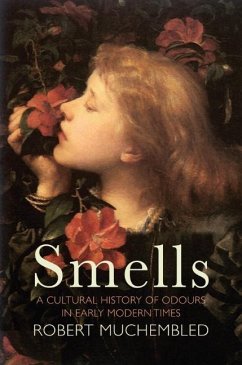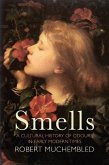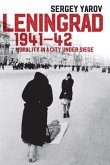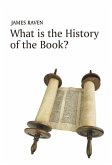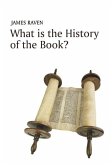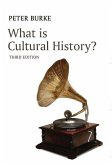Why is our sense of smell so under-appreciated? We tend to think of smell as a vestigial remnant of our pre-human past, doomed to gradual extinction, and we go to great lengths to eliminate smells from our environment, suppressing body odour, bad breath and other smells. Living in a relatively odour-free environment has numbed us to the importance that smells have always had in human history and culture.
In this major new book Robert Muchembled restores smell to its rightful place as one of our most important senses and examines the transformation of smells in the West from the Renaissance to the beginning of the 19th century. He shows that in earlier centuries, the air in towns and cities was often saturated with nauseating emissions and dangerous pollution. Having little choice but to see and smell faeces and urine on a daily basis, people showed little revulsion; until the 1620s, literature and poetry delighted in excreta which now disgust us. The smell of excrement and body odours were formative aspects of eroticism and sexuality, for the social elite and the popular classes alike. At the same time, medicine explained outbreaks of plague by Satan's poisonous breath corrupting the air. Amber, musk and civet came to be seen as vital bulwarks against the devil's breath: scents were worn like armour against the plague. The disappearance of the plague after 1720 and the sharp decline in fear of the devil meant there was no longer any point in using perfumes to fight the forces of evil, paving the way for the olfactory revolution of the 18th century when softer, sweeter perfumes, often with floral and fruity scents, came into fashion, reflecting new norms of femininity and a gentler vision of nature.
This rich cultural history of an under-appreciated sense will be appeal to a wide readership.
Hinweis: Dieser Artikel kann nur an eine deutsche Lieferadresse ausgeliefert werden.
In this major new book Robert Muchembled restores smell to its rightful place as one of our most important senses and examines the transformation of smells in the West from the Renaissance to the beginning of the 19th century. He shows that in earlier centuries, the air in towns and cities was often saturated with nauseating emissions and dangerous pollution. Having little choice but to see and smell faeces and urine on a daily basis, people showed little revulsion; until the 1620s, literature and poetry delighted in excreta which now disgust us. The smell of excrement and body odours were formative aspects of eroticism and sexuality, for the social elite and the popular classes alike. At the same time, medicine explained outbreaks of plague by Satan's poisonous breath corrupting the air. Amber, musk and civet came to be seen as vital bulwarks against the devil's breath: scents were worn like armour against the plague. The disappearance of the plague after 1720 and the sharp decline in fear of the devil meant there was no longer any point in using perfumes to fight the forces of evil, paving the way for the olfactory revolution of the 18th century when softer, sweeter perfumes, often with floral and fruity scents, came into fashion, reflecting new norms of femininity and a gentler vision of nature.
This rich cultural history of an under-appreciated sense will be appeal to a wide readership.
Hinweis: Dieser Artikel kann nur an eine deutsche Lieferadresse ausgeliefert werden.
"Mr. Muchembled's fine-grained and evocative research shows how eloquent smell can be in helping us understand the past."
The Wall Street Journal
"Muchembled reminds us that the variables of time and place may defy a truly shared language. What we smell depends on what's in vogue and what's valued--on what cultural forces happen to be swirling in the air."
The New Yorker
"In this fascinating study, with unexpected twists and turns, Robert Muchembled explores the opaque topic of smell as if he were discovering a new continent that is as rich as it is mysterious."
Historia
"A rigorous, rich and lively book."
Les Cahiers de Science & Vie
"Smells is part scholarly treatise, part fascinating popular history, dashed through with a soupçon of wit."
Foreword Reviews
"This lively book combines scholarship with readability and ranges from plague to perfume, from the stink of cities to jokes about smelly people. Its interesting examples should appeal to an equally wide range of readers."
Peter Burke, University of Cambridge
"Robert Muchembled's new history is full of disgusting, delicious details... If you've ever wondered how living without modern technologies of sanitation might have shaped the surrounding culture, this book is for you."
Slate
"Lively"
London Review of Books
"delightful carnival of olfaction"
The Spectator
"Smells's mélange of the scholarly with the scatalogical makes for a dazzling, lusty romp through European history."
Foreword Reviews
"An illuminating piece of social history."
Fortean Times
'Book of the Week' in The Daily Mail
"Captivating... Elegantly wicked and meticulous in its execution"
The Australian
"engrossing"
Frieze
The Wall Street Journal
"Muchembled reminds us that the variables of time and place may defy a truly shared language. What we smell depends on what's in vogue and what's valued--on what cultural forces happen to be swirling in the air."
The New Yorker
"In this fascinating study, with unexpected twists and turns, Robert Muchembled explores the opaque topic of smell as if he were discovering a new continent that is as rich as it is mysterious."
Historia
"A rigorous, rich and lively book."
Les Cahiers de Science & Vie
"Smells is part scholarly treatise, part fascinating popular history, dashed through with a soupçon of wit."
Foreword Reviews
"This lively book combines scholarship with readability and ranges from plague to perfume, from the stink of cities to jokes about smelly people. Its interesting examples should appeal to an equally wide range of readers."
Peter Burke, University of Cambridge
"Robert Muchembled's new history is full of disgusting, delicious details... If you've ever wondered how living without modern technologies of sanitation might have shaped the surrounding culture, this book is for you."
Slate
"Lively"
London Review of Books
"delightful carnival of olfaction"
The Spectator
"Smells's mélange of the scholarly with the scatalogical makes for a dazzling, lusty romp through European history."
Foreword Reviews
"An illuminating piece of social history."
Fortean Times
'Book of the Week' in The Daily Mail
"Captivating... Elegantly wicked and meticulous in its execution"
The Australian
"engrossing"
Frieze

